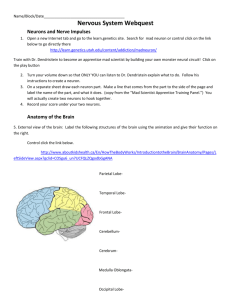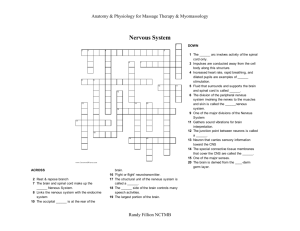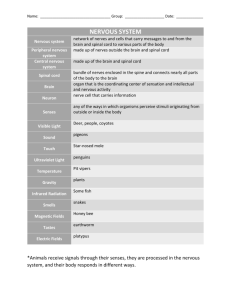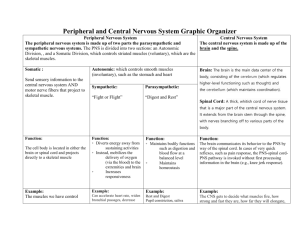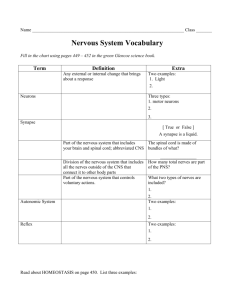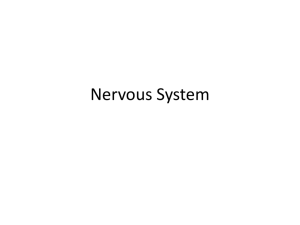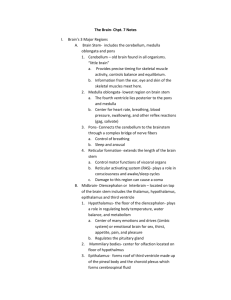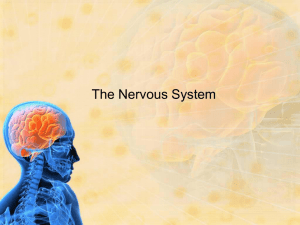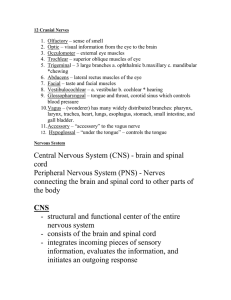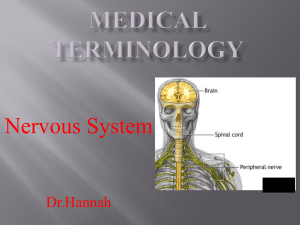Central Nervous System
advertisement
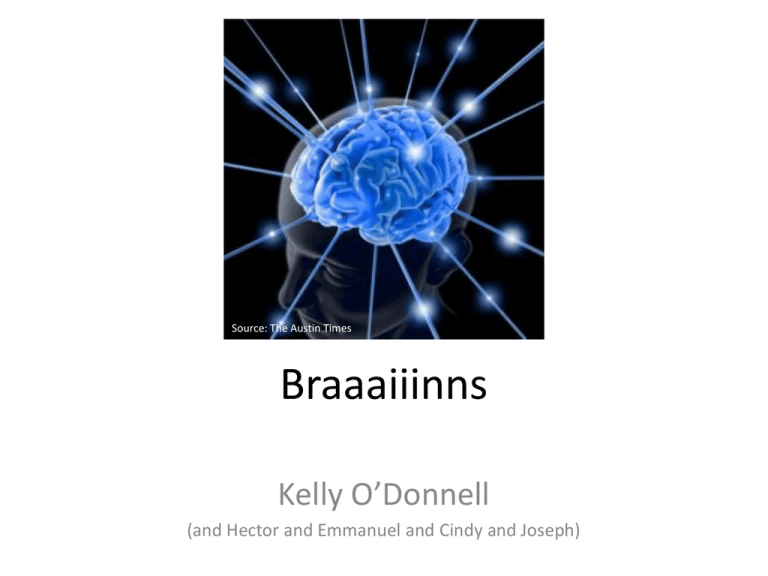
Source: The Austin Times Braaaiiinns Kelly O’Donnell (and Hector and Emmanuel and Cindy and Joseph) The structure of the Brain Hector Tirado The corpus callosum is a bundle of axons which connects these two hemispheres. The limbic system, often referred to as the "emotional brain", is found buried within the cerebrum. Like the cerebellum, evolutionarily the structure is rather old. • • • Frontal Lobe- associated with reasoning, planning, parts of speech, movement, emotions, and problem solving Parietal Lobe- associated with movement, orientation, recognition, perception of stimuli Occipital Lobe- associated with visual processing • Temporal Lobe- associated with perception and recognition of auditory stimuli, memory, and speech • Occipital Lobe- associated with visual processing • Temporal Lobe- associated with perception and recognition of auditory stimuli, memory, and speech Central Nervous System • Consist of the brain and vertebrates and the spinal cord. Peripheral Nervous System • Voluntary Nervous System and Autonomic Nervous System. • The spinal cord is like a jellylike bundle of nerve fibers, lies inside the spine. • The spinal cord acts as a central communication conduit between the brain and the rest of the body. • Millions of nerve fibers within the cord carry motor information from the brain to the muscles and other convey sensory information. • As part of the voluntary nervous system neurons of the motor system carry signals to the skeletal muscles, mainly in response to external stimuli ( voluntary ). • The autonomic nervous system regulates internal environment by controlling smooth and cardiac muscles and the organs and glands of the digestive, cardiovascular, excretory and the endocrine systems ( involuntary ). The Digital Brain Library Source: Theguardian.com “The Brain observatory at the University of California” • Jacopo Annese is looking for 1,000 brains. The director of the brain library is on a quest to collect, dissect, and digitize images of the human brain for the Digital Brain Library, which was launched with support from the National Science Foundation. (science360.gov) Annese and his team look for connections, mapping brain structure and connecting it to human behavior. He believes that with a large enough catalog of brains preserved as virtual models, scientists can explore the organ in ways unheard of, revealing new insights into what makes the brain tick. (science360.org)
